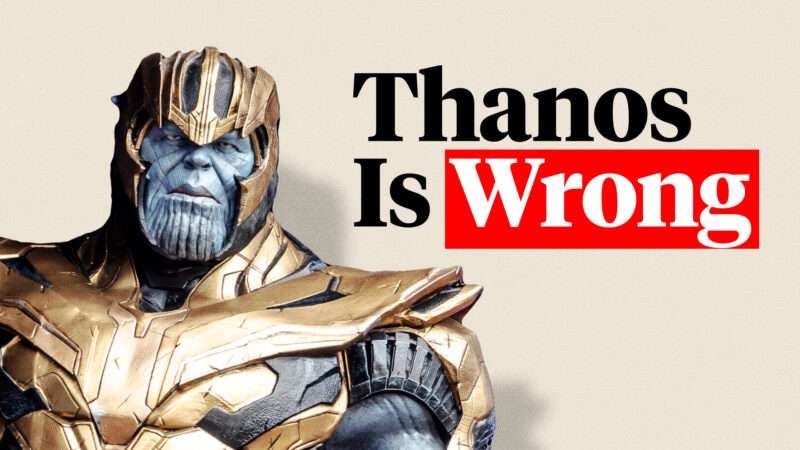
"This universe is finite. Its resources, finite. If life is left unchecked, life will cease to exist." So declares the Marvel Comics supervillain Thanos near the end of Avengers: Infinity War, when he destroys half of humanity with the snap of his finger.
In Superabundance, Marian L. Tupy of the Cato Institute and Gale L. Pooley of Brigham Young University note that Thanos is simply channeling millennia-old critiques of progress and population growth. In the best-known version of this argument, the 19th-century economist Thomas Malthus contended that more people inevitably means famine and starvation.
But Malthus—and Thanos—are wrong. The past 200 years have seen historically huge increases in the number of people living on planet Earth. Indeed, we've gone from 1 billion in 1800 to 8 billion in 2022, but we are flourishing more than ever before and living longer, more productive lives.
Tupy and Pooley chart how the real prices of our most basic necessities—and most of our luxury goods—have declined over time and how free markets and human innovation mean that our planet is infinitely bountiful.
Produced by Nick Gillespie; Edited by Adam Czarnecki and Justin Zuckerman; Sound editing by Ian Keyser
Photo credits: Cfoto/ZUMAPRESS/Newscom; RICHARD B. LEVINE/Newscom; Li Baishuan / Xinhua News Agency/Newscom; Cfoto/ZUMAPRESS/Newscom; Richard Hamilton Smith/Newscom; Album/Newscom; Sergi Reboredo / VWPics/Newscom
The post Thanos Was Wrong: More People Means More Wealth appeared first on Reason.com.







